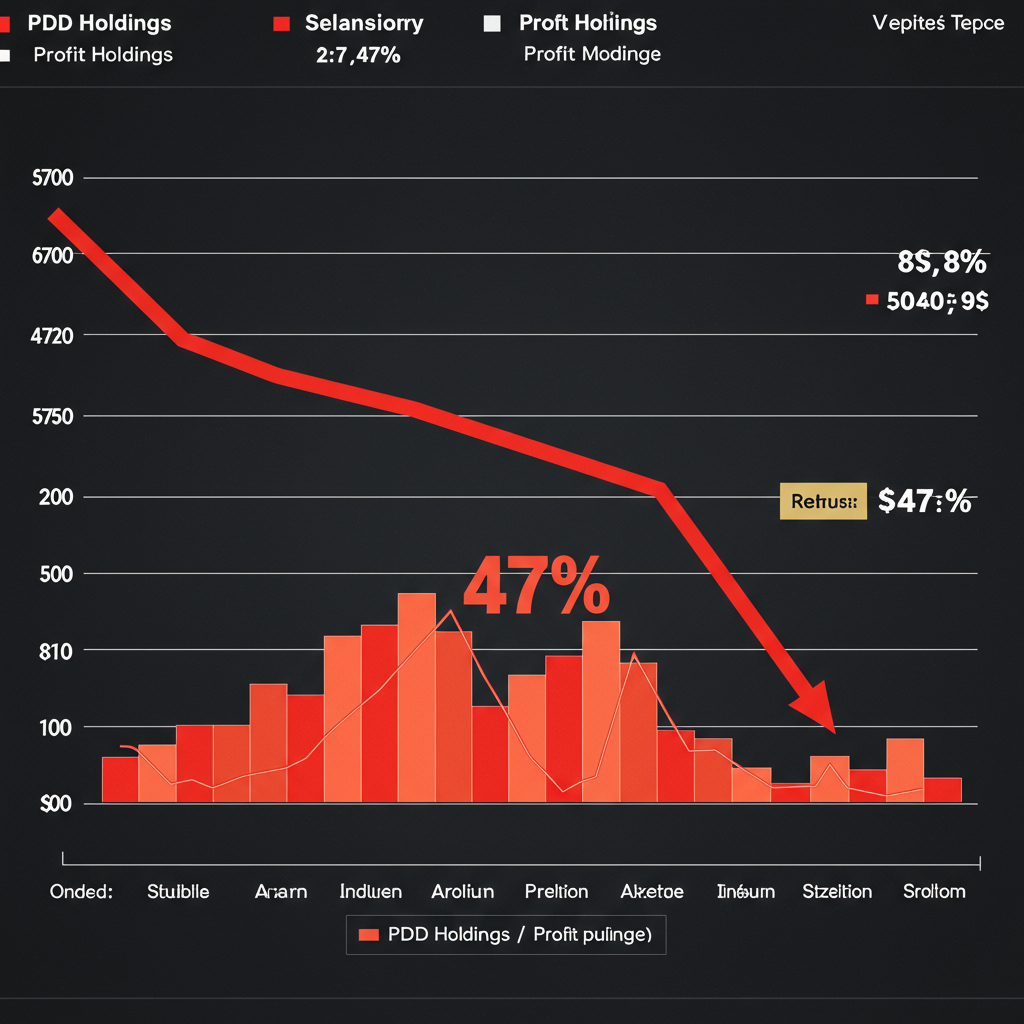Temu’s Parent Company Reports Sharp Profit Decline Amid Global Headwinds
PDD Holdings, the Chinese technology giant behind the popular online shopping platform Temu, has announced a significant 47% drop in its net profit for the first quarter of the year. The company attributes this sharp decline primarily to challenging external policy environments, particularly the impact of evolving US trade policies and tariffs, alongside intense competition in its home market.
For the three months ending March 31st, PDD Holdings reported a profit of 14.74 billion yuan (approximately $2.05 billion). This performance led to a notable reaction in the market, with the company’s US-listed shares falling by more than 13% following the announcement.
Tariffs and Trade Policies Bite
A major factor contributing to the profit plunge is the recent shift in US trade policy. Platforms like Temu and its rival Shein had heavily relied on the “de minimis” exemption. This rule previously allowed parcels valued under $800 to enter the United States without incurring import duties, enabling these companies to ship low-value items directly to US consumers tariff-free.
The Trump administration’s decision to end this exemption in early May directly impacted this business model. Chinese e-commerce firms suddenly faced substantial US tariffs, reportedly as high as 120%, on goods previously covered by the exemption. PDD Holdings chairman, Chen Lei, explicitly stated that the profit drop was due to a “radical change in external policy environments such as tariffs,” adding that the US-China trade situation had created “significant pressure for our merchants.”
In response to the imposition of these tariffs, Temu had indicated plans to halt direct shipments from China to US customers. However, amidst a recent, albeit temporary, easing of tensions between Washington and Beijing, the tariff rate on small packages has been reduced by over half for a 90-day period.
Domestic Price War and Global Scrutiny
Adding to the international trade pressures, PDD Holdings is also grappling with intense competition within China. The company remains locked in a prolonged price war against major domestic rivals such as Alibaba and JD.com, operating against a backdrop of subdued consumer spending. This fierce competition in the home market further strains operating margins, which analysts suggest were also weakened by the impact of US tariffs.
Furthermore, Temu and its competitors are facing increasing scrutiny and potential new costs in other key international markets:
Europe: The European Union has proposed a two-euro flat fee on billions of small parcels sent directly to consumers’ homes, with online marketplaces expected to bear this cost.
United Kingdom: Following complaints from domestic retailers, the UK government, as announced by Chancellor Rachel Reeves, is planning to review the customs treatment of low-value products entering the country.
Strategic Response
In light of these global uncertainties and tariff challenges, PDD Holdings is reportedly adapting its strategy. The company is looking towards facilitating local merchant fulfillment in certain markets. This strategic shift aims to help mitigate the impact of tariffs and potentially maintain more stable prices for consumers amidst the volatile external environment.
The convergence of these significant international policy shifts, ongoing domestic market battles, and emerging regulatory hurdles in other regions paints a challenging picture for PDD Holdings, directly contributing to the substantial decline in its first-quarter profitability.
References
- https://www.bbc.com/news/articles/cy8dvywypp2o
- https://www.bbc.co.uk/news/articles/cy8dvywypp2o
- https://finance.yahoo.com/news/temus-chinese-owner-sees-profits-031933434.html
- https://ground.news/article/temus-chinese-owner-sees-profits-plunge-as-tariff-war-bites_a88364
- https://ground.news/article/temus-chinese-owner-sees-profits-plunge-as-tariff-war-bites_dacf61



